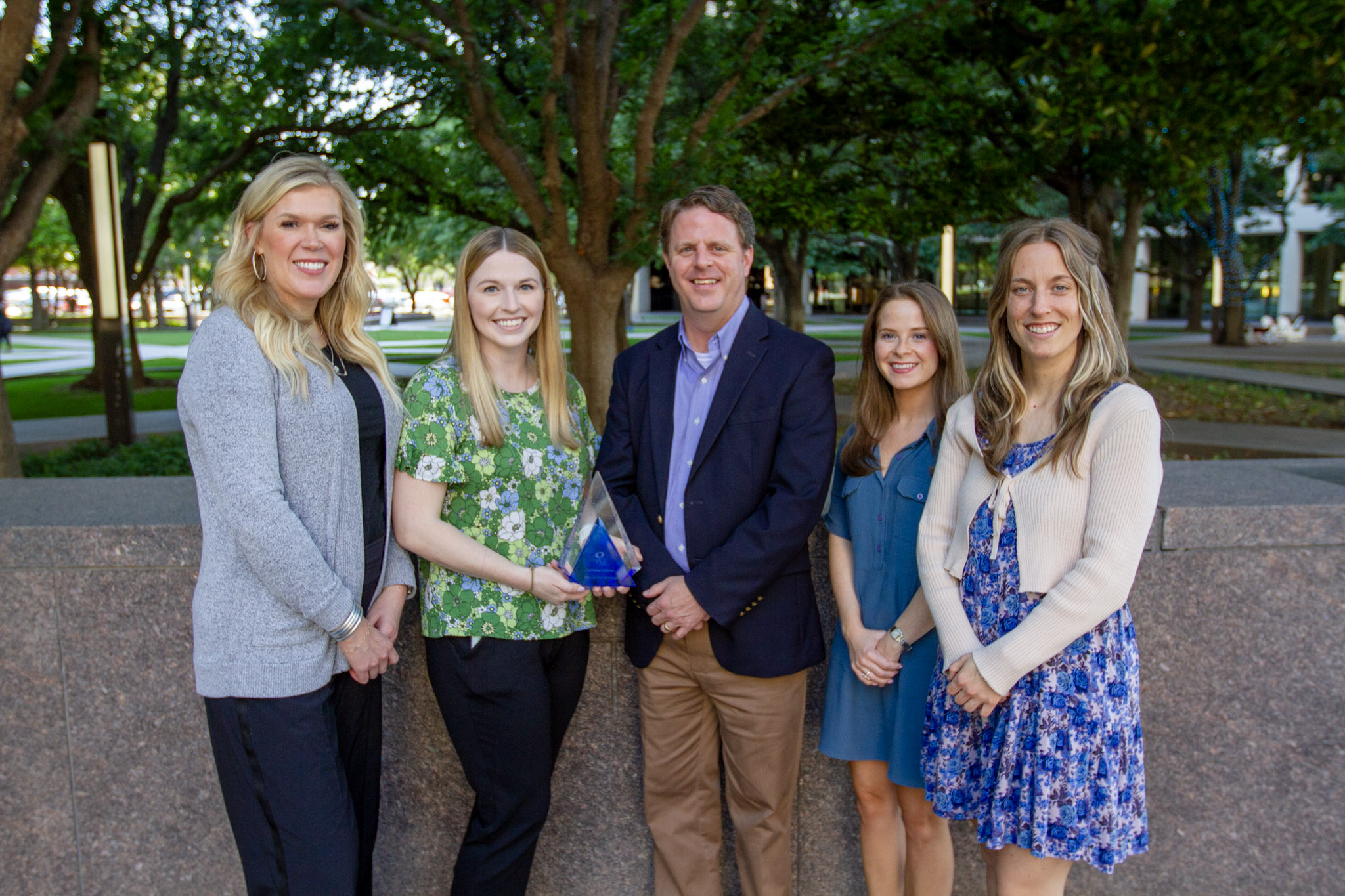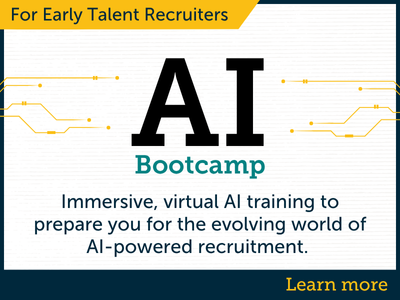Freese and Nichols significantly increased its university hiring by implementing a talent acquisition platform to collect and distribute candidate information digitally and modifying its career fair roles and processes. This increase is crucial because hiring civil and environmental engineering majors has become increasingly competitive, Lauren Hodge explains.
“By implementing Yello and modifying our roles and processes related to our on-campus career fair strategy, we were able to increase our university hiring by 43% for the 2022-23 university recruiting season,” explains Hodge, Freese and Nichols’ university recruiting coordinator.
NACE AWARD WINNER
The employer winner of the 2024 NACE Technology Excellence Award, Freese and Nichols implemented talent acquisition platform Yello and modified its roles and processes related to its on-campus career fair strategy to significantly increase its university hiring. For more information about the NACE Awards program, see www.naceweb.org/about-us/nace-awards/.“Collecting and distributing candidate information digitally has strengthened our ‘earlier and quicker’ strategy. We saw more interviews and subsequent hires earlier, giving us a significant advantage in an increasingly competitive talent market for engineering students.”
Hodge points out that with peak career fair seasons compacted into just a few weeks, Freese and Nichols’ talent acquisition staff is tied up with travel and events and is hard-pressed to find time to collect paper resumes, decipher handwritten notes, track activity in Excel spreadsheets, and manage online applications. All the resumes would also have to be scanned and distributed.
“This was a cumbersome and slow process,” Hodge says.
“Managers expressed concern that by the time we distributed resumes, candidates often had accepted jobs from our competitors. With our hiring goals increasing year-to-year, we needed to become more efficient and effective in hiring university students, particularly ones we met at career fairs.”
The talent acquisition team knew that to hire top talent and do so in greater numbers, it had to be earlier and quicker than its competition. That meant it needed to collect candidate information to make selection decisions and distribute this information to the relevant hiring teams within days—not weeks—of the career fair.
“We wanted the process to be consistent, fair, and compliant but also easy for the candidate, career fair representatives, and hiring managers,” Hodge explains.
“While we achieved our hiring goals in the 2021-22 university recruiting season, we were concerned with burnout of talent acquisition staff. With increasing hiring goals, we knew the current strategy was not sustainable.”

Freese and Nichols implemented Yello and configured the software to meet its needs. Talent acquisition configured a check-in form for candidates and evaluation forms for career fair participants, ensuring the team collected relevant candidate data—including job preferences—and ease of use for all.
“Now, at our career fair booth, a candidate approaches a kiosk with a tablet or scans a QR code via their mobile device to check in,” Hodge says.
“After checking in by providing details about their qualifications and job preferences, they talk to a Freese and Nichols career fair representative, who uses a tablet to review candidate information and add additional information to help with the matching and selection process, including asking questions about candidates’ location preferences, role interests, and type of job they are hoping for. Recruiters also upload a photograph of the candidate’s paper resume.”
After the career fair, Freese and Nichols uses filters to match candidates to needs and distribute candidate information in batches to hiring teams for interview selection. The goal, Hodge notes, is to distribute candidate information within three business days of the career fair.
Freese and Nichols also created a new job to help support its university hiring: university recruiting coordinator. A primary responsibility of this new role is to manage Yello and the process of distributing candidates after career fairs. Hodge moved into the new role and focused on interns, allowing the firm’s senior university recruiter to focus on its entry-level hires.
“These shifts have proven to be successful as we were able to hire more than half of our university hires in the fall recruiting season, leaving less stress for our spring semester,” Hodge notes.
“Having the data in Yello combined with data from our ATS allows us to create a scorecard measuring the effectiveness of each event to evaluate and plan for changes in future seasons. It helps shape our career fair strategy and list of target schools. We are able to make data-driven decisions based on effectiveness of events rather than conjecture or school preference. We have also built a database of candidates who we can contact through ongoing email or text campaigns for future opportunities.”
With only days—instead of weeks—between events and candidate distribution, the initial impact of Yello was a surge of interviews, from 71 in September to 182 in October, a 156% increase.
Subsequently, Freese and Nichols had more hires earlier than in previous seasons. At the end of the fall season, the firm had achieved 54% of its new graduate hiring goal (compared to 17% at the same point the year prior) and 47% of its intern hiring goal (compared to 4% at the same point the year prior).
“This demonstrates that the strategy helped Freese and Nichols achieve our goal of ‘earlier and quicker’ in a more competitive hiring environment. At the end of our first university recruiting season using Yello, we exceeded the increased demand for new grads and interns,” Hodge says.
“We hired 92 new graduates, exceeding our goal by 18%, and we hired 92 interns, exceeding our goal by 16%. Overall, this represents a 43% increase in university hiring year-over-year.”
Freese and Nichols’ implementation of Yello, the addition of a university recruiting coordinator, and its new resume distribution process have resulted in more hires earlier in the season. Its university hiring goals have increased for the third consecutive year.
“We have been able to scale our new strategy to be on target for these higher goals, having achieved 60% of our university hiring goal for the 2023-24 season by the end of the fall semester,” Hodge says.
For its work in this area, the Freese and Nichols talent acquisition team received the Horizon Innovation Award, an internal award selected by the firm’s Innovation Strike Team, composed of both technical and corporate representatives.
Hodge emphasizes that the successful implementation of Yello has been a team effort—from technical staff making adjustments in how they review resumes to representatives at the events precisely filling out the collection forms so resumes are routed to the correct managers.
Says Hodge: “We are learning new ways to become more efficient and strategic. We have deployed a texting campaign prior to arriving on campus to invite students to our booth. We are also exploring functionality such as tags to group candidates by job preferences and graduating class to help us manage candidates more effectively.





